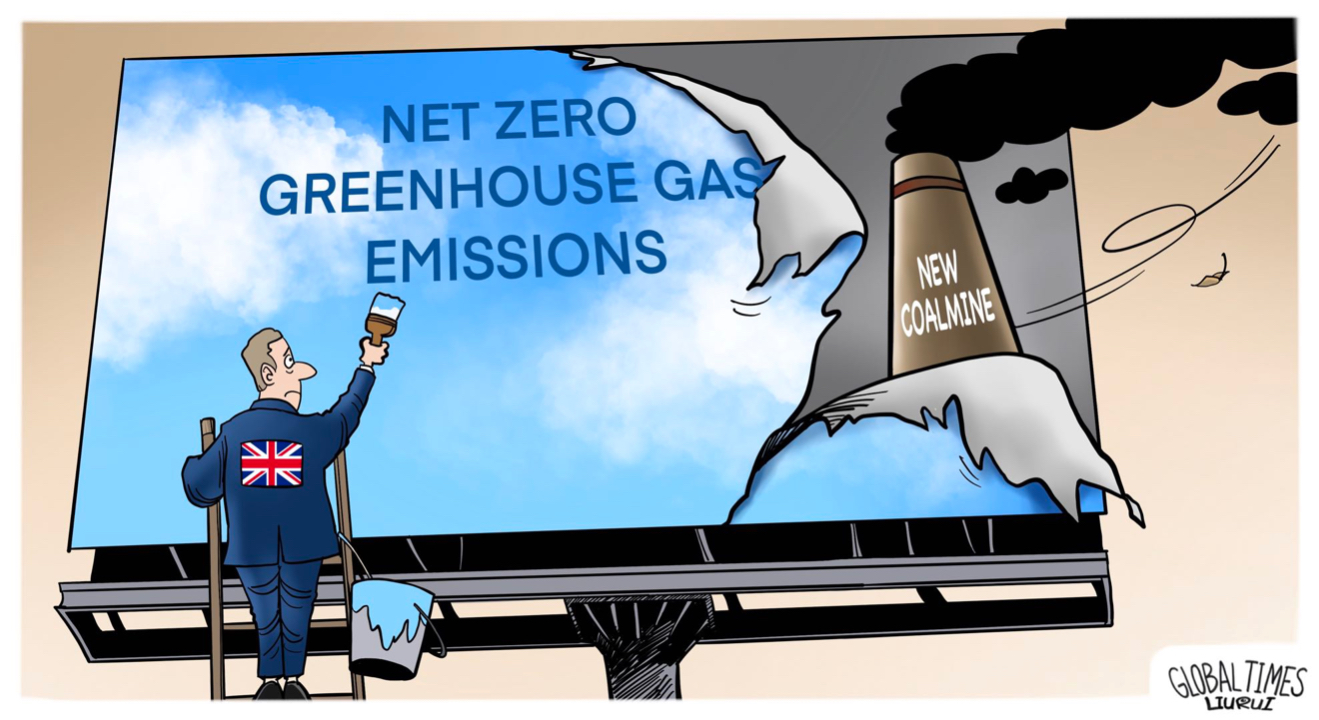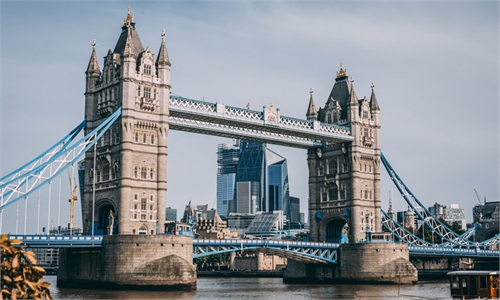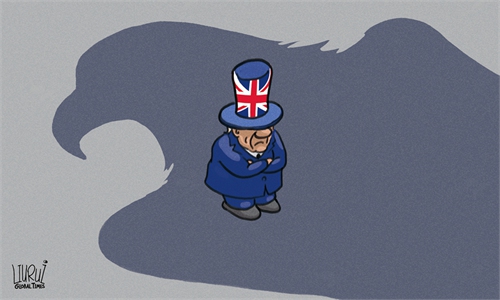
Botched work. Illustration: Liu Rui/GT
Talking in high profile while dragging the feet – such contradictory actions are not sustainable when it comes to dealing with climate change. Only reasonable deeds can be pushed forward in a sustainable way, and only countries with the ability to lead can set an example as “pioneers.” Unfortunately, the West is losing such ability.According to a Guardian report on Wednesday, the UK will build its first new coal mine in three decades at Whitehaven in Cumbria, northwest England. The new mine will take two years to build and will produce an estimated 2.8 tons of coking coal a year, which is used in the production of steel.
Burning a pound of coal emits 2.07 pounds of carbon dioxide. The UK government seems to be forgetting about the climate commitments it has made in the past. At last year’s COP26 Climate Change Conference in the UK’s Glasgow, the UK set the goal of accelerating the phase-out of coal. In 2019, it committed to reaching net zero greenhouse gas emissions by 2050. UK Prime Minister Rishi Sunak said in his speech at this year’s COP27 last month that Britain is “morally right” to honor its climate change commitments.
In June, the UK’s climate change watchdog warned that the plan to build a coal mine in Cumbria is “absolutely indefensible” because the resulting pollution would blow holes through the nation’s pledge to reduce emissions by 2050.
In similar moves, France has rebooted a coal-fired power station to secure the country’s electricity supply over the winter. A hard-coal-fired power plant in Germany is also back in operation due to the gas supply crisis. While in the US, the Supreme Court ruled in July to limit the Environmental Protection Agency's ability to restrict greenhouse gas emissions from power plants, a significant setback for climate action.
Against the backdrop of the Russia-Ukraine conflict, Western countries broke the energy supply-demand balance with Russia, not only dragging themselves into an energy crisis, but also pulling the whole world to bear the consequences. When these old-brand capitalist countries put their narrow interests above their countries’ long-term interests and the common interests of humanity, this overshadows the efforts in coping with climate change by the world, especially developing countries.
Climate change is one of the most important agendas facing humanity. It requires the cooperation of all countries and should transcend geopolitics. But the experiences in the past decades show that in Western countries, climate change actions are subject to their foreign political and economic objectives. This means the West will only talk high but act low and be strict with others while loose with itself – this is what hypocrisy entails.
For a long time, Western countries have used climate change and carbon emissions as political tools. Behind the climate agenda is a set of geopolitical tools crafted by Western countries to suppress developing countries. They label themselves as a “pioneer” in coping with climate change, while using climate change as an excuse to block the development of developing countries so that they can continue to enjoy the benefits they once exploited, be bossy as always, and retain their discourse power and dominant position in the international system. The West has not paid back historical debts, and now it is owing more.
Shen Yi, a professor from Fudan University, told the Global Times that Western countries took the lead in completing industrialization while emitting carbon dioxide recklessly, and they have an obligation to help developing countries reduce carbon emissions. However, Western countries not only transferred their industries to developing countries to enjoy the high-quality and cheap products from developing countries, but at the same time required developing countries to pay for carbon emissions. This is sacrificing some people’s interests to realize others’ governance model. For the West, emission reduction is not a rigid task, and it is just normal to sacrifice long-term goals for current political objectives.
Xu Liang, an associate professor at the School of International Relations of Beijing International Studies University, believes that Western countries such as the UK should explain and apologize to the international community, because they delay the global process of tackling climate change. But the question is, do these countries have the will to bear international responsibilities? For them, international responsibility is just a false proposition.


